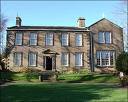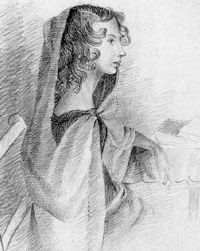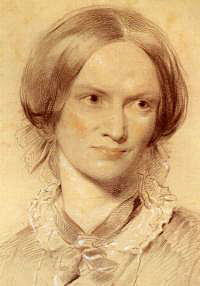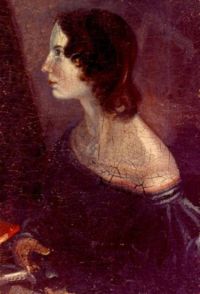The Bronte Sisters and Homeopathy
July 27, 2008
 The Bronte
sisters became aware of
homeopathy through their publishers, and they read homeopathic books and
Charlotte was friendly with prominent homeopaths and homeopathic
supporters.
The Bronte
sisters became aware of
homeopathy through their publishers, and they read homeopathic books and
Charlotte was friendly with prominent homeopaths and homeopathic
supporters.
The Bronte family were friends of Abraham Dixon and his family,
 Anne
Bronte was an
advocate
of homeopathy.
Anne
Bronte was an
advocate
of homeopathy.
**Anne Bronte** 1820 – 1849 was a British novelist and poet, the youngest member of the Brontë literary family.
The daughter of a poor Irish clergyman in the Church of England, Anne Brontë lived most of her life with her family at the remote village of Haworth on the Yorkshire moors.
For a couple of years she went to a boarding school. At the age of nineteen, she left Haworth working as a governess between 1839 and 1845.
After leaving her teaching position, she fulfilled her literary ambitions. She wrote a volume of poetry with her sisters (Poems by Currer, Ellis and Acton Bell,
- and in short succession she wrote two novels: Agnes Grey, based upon her experiences as a governess, was published in 1847; her second and last novel, The Tenant of Wildfell Hall appeared in 1848.
Anne’s creative life was cut short with her death of pulmonary tuberculosis when she was only twenty-nine years old.
 **Charlotte
Bronte **1816 – 1855
was a British
novelist, the eldest of the
three famous Brontë sisters
whose novels have become standards
of English
literature.
**Charlotte
Bronte **1816 – 1855
was a British
novelist, the eldest of the
three famous Brontë sisters
whose novels have become standards
of English
literature.
Charlotte Brontë, who used the pen name Currer Bell, is best known for Jane Eyre, one of the most famous of English novels.
Charlotte Bronte’s publisher *Smith, Elder and Co in Cornhill sent her a book on homeopathy, and Mr. **William Smith Williams of *Smith, Elder and Co also sent her a book on homeopathy and advised her to call a homeopath for Ellis Bell (Emily Bronte’s pseudonym).
Laurence Alma Tadema [married the sister of \*William Smith Williams’ daughter-in-law in 1871](http://64.233.183.104/search?q=cache:-25Qi0AWs18J:www.ics.mq.edu.au/~chris/bronte/news18.pdf+bronte+in+india&hl=en&ct=clnk&cd=16&gl=uk&client=firefox-a). She was *Laura Epps the daughter of *George Napoleon Epps the half-brother of homeopath ***John Epps whom Charlotte Bront? consulted about homeopathic help for Emily.
Charlotte was an advocate of homeopathy and she tried to persuade Emily to try it. In desperation, Charlotte wrote to ***John Epps, a homeopathic physician for advice about Emily, who tragically refused all medications at her end.
December 9th 1848 letter to Ellen Nussey “I know it would be useless to consult Drs. Elliotson (John Elliotson) or Forbes (John Forbes): my sister would not see the most skillful physician in England if he were brought to her just now, nor would she follow his prescription. With regard to Homeopathy, she has at least admitted that it cannot do much harm, perhaps if I get the medicines she may consent to try them; at any rate, the experiment shall be made…” -Charlotte Bronte
Charlotte Bronte’s publisher Smith, Elder & Co. also published Robert Browning, George Eliot, Elizabeth Cleghorn Gaskell, Thomas Hardy, Richard Jefferies, George MacDonald, Charles Reade, John Ruskin, Algernon Charles Swinburne, Alfred Lord Tennyson and George Gissing.
Charlotte and her father were now left alone. In view of the enormous success of Jane Eyre, she was persuaded by her publisher to visit London occasionally, where she revealed her true identity and began to move in a more exalted social circle, becoming friends with *Harriet Martineau, Elizabeth Cleghorn Gaskell, *William Makepeace Thackeray, *George Eliot and *George Henry Lewes. Her book had sparked a movement in regards to feminism in literature.
 Emily Jane
Bronte 1818 – 1848
was a British novelist and poet, now best remembered for her only novel
Wuthering Heights, a
classic of English
literature. Emily was
the second eldest of the three surviving Brontë
sisters, being younger than
Charlotte and
older than Anne. She
published under the masculine pen
name Ellis Bell.
Emily Jane
Bronte 1818 – 1848
was a British novelist and poet, now best remembered for her only novel
Wuthering Heights, a
classic of English
literature. Emily was
the second eldest of the three surviving Brontë
sisters, being younger than
Charlotte and
older than Anne. She
published under the masculine pen
name Ellis Bell.
Emily Bronte read ***Paul Francois Curie’s book on homeopathy but died refusing all medications.